DISCLOSURE: VT condemns the horrific tragedy committed by the NAZI Party against Jewish Citizens of Europe during Word War II known as the "Holocaust". VT condemns all racism, bigotry, hate speech, and violence. However, we are an open source uncensored journal and support the right of independent writers and commentors to express their voices; even if those voices are not mainstream as long as they do NOT openly call for violence. Please report any violations of comment policy to us immediately. Strong reader discretion is advised.
…by Jonas E. Alexis

In 1988, Jewish journalist and Hollywood historian Neal Gabler wrote his influential book An Empire of their Own: How Jews Invented Hollywood. (The bold claim “Jews invented Hollywood” is itself an invention. The historical claim would be: How Jews took over Hollywood. Leaving that aside for a different article in the future, let us take Gable to task here.)
Six years after the publication of Gabler’s book, British journalist William Cash adopted Gabler’s premise, arguing that Jews largely constituted the social fabric of Hollywood in an article for the highly-read British journal Spectator.
Gabler, seemingly oblivious to the fact that Cash was simply reiterating the sentiments of An Empire of their Own, called Cash’s article “an anti-Semitic bleat from a reactionary crackpot.” E. Michael Jones concluded, “Gabler attacked Cash for saying what Gabler had said in his own book!”[1]
This attitude is appalling, but unfortunately it is becoming the rule rather than the exception among many Jewish writers and ideologues.
In the first chapter of his own book, Gabler writes:
“The American film industry…was founded and for more than thirty years operated by Eastern European Jews…The much-vaunted ‘studio system,’ which provided a prodigious supply of films during the movies’ heyday, was supervised by a second generation of Jews, many of whom also regarded themselves as marginal men trying to punch into the American mainstream.
“The storefront theaters of the late teens were transformed into the movie palaces of the twenties by Jewish exhibitors. And when sound movies commandeered the industry, Hollywood was invaded by a battalion of Jewish writers, mostly from the East.
“The most powerful talent agencies were run by Jews…Above all, Jews produced the movies. ‘Of 85 named engaged in production,’ a 1936 study noted, ‘53 are Jews. And the Jewish advantage holds in prestige as well as numbers.’”[2]
 Gabler goes so far as to say that “the Hollywood Jews created a powerful cluster of images and ideas—so powerful that, in a sense, they colonized the American imagination…
Gabler goes so far as to say that “the Hollywood Jews created a powerful cluster of images and ideas—so powerful that, in a sense, they colonized the American imagination…
“Ultimately, American values came to be defined largely by the movies the Jews made. Ultimately, by creating their idealized America on the screen, the Jews reinvented the country in the image of their fiction.”[3]
Jewish scholar Benjamin Ginsberg maintains similar views in his book The Fatal Embrace: Jews and the States. On the first page of the book, Ginsberg writes:
“Since the 1960s, Jews have come to wield considerable influence in American economic, cultural, intellectual, and political life. Jews played a central role in American finance during the 1980s, and they were among the chief beneficiaries of that decade’s corporate mergers and reorganizations.
“The chief executive officers of the three major television networks and the four largest film studios are Jews, as are the owners of the nation’s largest newspaper chain and most influential single newspaper, the New York Times…. Jews are even more prominent in political organizations and in finance…
“In the realm of lobbying and litigation, Jews organized what was for many years one of Washington’s most successful political action committees, the American Israel Public Affairs Committee (AIPAC), and they play leadership roles in such important public interest groups as the American Civil Liberties Union (ACLU) and Common Cause…
“After the Democrats’ victory, President Clinton appointed a number of Jews to prominent positions in his administration. Their role in American economic, social, and political institutions has enabled Jews to wield considerable influence in the nation’s public life.”[4]
Here we can see Ginsberg is at odds with people like Abraham Foxman of the Anti-Defamation League ( ADL). On the ADL’s website, we read,

“The assertion that Jews ‘control’ Hollywood the media, banking and finance, among other things, is an anti-Semitic canard which dates back more than 70 years to an anti-Jewish campaign waged in the 1920s by the Dearborn Independent a long-defunct publication backed by the late industrialist Henry Ford Sr. The Dearborn Independent had mounted a seven-year anti-Semitic campaign based on the notorious and fraudulent book, The Protocols of the Learned Elders of Zion.”[5]
The problem with this assertion is that something is not axiomatically false just because someone says it is. It has to have an evidential foundation. Thus, the anti-Semitic tactics being propounded by people like Foxman lose strength when confronted with demands for empirical evidence.
On the contrary, Steven Spielberg himself says,
“The Jewish involvement in motion pictures is more than a success story; it is the basis of disproportionate influence that Jews have had in shaping American popular culture.”[6]
Film historians and Jewish scholars such as David Desser, Lester D. Friedman, Vincent Brook, Joyce Antler, David Zurawik, James D. Bloom, Henry Bial, Murray Pomerance, Daniel Bernadi, Peter Kramer, Andrea Most, J. Hoberman, Jeffrey Shandler, Lawrence Baron, among others, tell us something similar but with a slightly different spin.[7]
A recent book by Jewish scholar Eric A. Goldman has said the same thing in a different tone.[8] Jewish scholar Nathan Abrams does not say this explicitly in his recent work[9] probably because his essay “Triple Exthnics” in the Jewish Quarterly in 2004 in which he said that
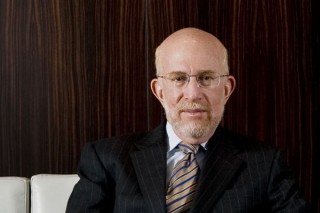
“Jewish involvement in the X-rated industry can be seen as a proverbial two fingers to the entire WASP establishment in America. Some porn stars viewed themselves as frontline fighters in the spiritual battle between Christian America and secular humanism…
“Jewish involvement in porn… is the result of an atavistic hatred of Christian authority: they are trying to weaken the dominant culture in America by moral subversion.” [10]
That article got Abrams into a lot of trouble. Four years later, Abrams ended up refuting the essence of what he wrote in “Triple Exthnics.” For him, too many “anti-Semites” were using the article to “attack” Jews.[11]
Scholars like Stuart J. Hecht for example declare that virtually all ethnic groups in America ended up molding “upon the Jewish example” when it came to Broadway.[12] As Jewish film composer Marin Hamlisch put it:
“The Hollywood studio and the Broadway theatre became sets on which Jews described their own vision of an idealised America and subtly wrote themselves into that scenario as accepted members of the white American community.”[13]
And New York, from 1910 and onward, was to Broadway Jews what the Talmud is to rabbis.
———————————–
 So should we believe Foxman, who provides no evidence, or should we take the words of Spielberg and Jewish scholars, who provide more fact than fiction?
So should we believe Foxman, who provides no evidence, or should we take the words of Spielberg and Jewish scholars, who provide more fact than fiction?
In the same article, Foxman goes on to cite a Jewish professor by the name of Steven G. Kellman to the effect that
“‘Though individual Jews control Hollywood, Jewishness does not.’”[14] Complete balderdash.
As a case study, let’s look at the 2009 movie Inglourious Basterds. Although written and directed by Quentin Tarantino, the movie would not have come to fruition without the backing of the Weinstein Company.
Actor Eli Roth, who plays Sgt. Donny Donowitz—nicknamed the “Bear Jew” —made it clear in interviews that Tarantino worked closely with him on the script. He said,
“I was his Jewish sounding board. ‘Would a Jew do this, would a Jew do that?’ He kind of didn’t have an ending. But after the seder, he said, ‘I’m going home to finish…’ At the end of the seder, we talked about how the Jewish thing was to remember that there was no absolution.”[15]
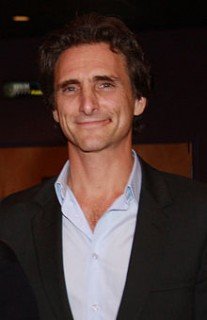
The movie received wide Jewish acclaim. After reading the screenplay, Jewish producer Lawrence Bender told Tarantino:
“As your producing partner, I thank you, and as a member of the Jewish tribe, I thank you, mother fu$ker, because this movie is a fu$king Jewish wet dream.”[16]
In another article, Bender said, “Quentin, you are about to make your Bar Mitzvah movie; you are going to be officially let into the tribe’” and celebrated “we’re getting to live out a fantasy of revenge, getting to do what every Jew probably dreamed of.”[17] According to Bender, every Jew wants to kill a Nazi and in some sense espoused hatred for the Germans.[18]
Israeli-American writer Jeffrey Goldberg reported that “Harvey and Bob Weinstein, the film’s executive producers, also reportedly enjoyed the film’s theme of Jewish revenge. Tarantino told me he has received only positive reactions from his Jewish friends.
“‘The Jewish males that I’ve known since I’ve been writing the film and telling them about it, they’ve just been, ‘Man, I can’t [expletive] wait for this [expletive] movie!’ he told me. ‘And they tell their dads, and they’re like, ‘I want to see that movie!’…Neal Gabler told me that Jewish revenge fantasies aren’t entirely alien to the movie industry, but they’ve always been exercises in sublimation, Superman being only the most obvious.”[19]
Abraham Foxman wrote that Inglourious Basterds is not only “thought-provoking” and “entertaining,” but that it “should be recognized with an Academy Award” alongside other Holocaust films like Schindler’s List.[20]
Not only that, he encourages viewers to join him in wishing that the story were true. It does not seem to bother Foxman that the movie contains graphically violent scenes (such as the Bear Jew beating a man to death with a baseball bat) and flashes of pornography; the end—Jewish vengeance—justifies the means.
Protagonist Shosanna Dreyfus tells the Nazi leaders at the climax of the movie:
“You are all going to die. And I want you to look into the face of the Jew who is going to do it…This is the face of Jewish vengeance.”

Inglourious Basterds is the modern poster-child for the theme that vengeance is a Jewish virtue. Rabbi Meir Kahane—who founded “the Jewish Defense League (JDL) in the 1960s, a movement intended to counter acts of anti-Semitism”[21]—declared in 1980, “Vengeance is a fundamental Jewish concept that is a precept, injunction, commandment for the Jew.”[22]
In America, Kahane’s JDL “was portrayed in the mass media as a Jewish version of the Black Panthers, defending the rights of the oppressed. In Israel, however, where Jews are in power, the same belligerence often came off as racist bigotry; some called it a kind of Jewish Nazism. His statements about Arabs were compared word for word with those of Hitler about Jews and were found to be surprisingly similar. In the same vein, a biography of the rabbi appearing in the mid-1980s was sardonically titled Heil Kahane.”[23]
Kahane, not surprisingly, believes vengeance on the Arabs was justified:
“Let the government of Israel, which is responsible for the lives of its citizens, make the streets, buses, shops and homes of the Ishmaelites [Arabs] perpetual places of terror and stark insecurity…Wipe away the bitter degradation of God’s name that is symbolized by Arab refusal to bow to Jewish sovereignty.”[24]
Kahane saw this as signs of the coming of the Messiah. Cultural historian and noted sociologist Mark Juergensmeyer, who meticulously interviewed Kahane before writing his book, comments that Kahane believed that
“insofar as the Jews were exalted and their enemies humiliated, God was glorified and the Messiah’s coming was more likely. The enemies of Israel to be humiliated included any who came in the way of the movement toward reestablishing the biblical nation. Primarily they were Arabs.”[25]
Kahane was not just speaking figuratively. He meant business:
“In 1985, after a leader of the American-Arab Anti-Discrimination Committee, Alex Odeh, appeared on the American television program, Nightline, where he quarreled with the representatives of the JDL, he was mysteriously murdered in his office in Santa Ana, California.
“The FBI’s three main suspects in the crime, all of them JDL members, fled to Israel, where they have avoided prosecution ever since. The three—Robert Manning, Keith Fuchs, and Andy Green—were also involved in anti-Arab incidents in Israel.”[26]
It is incidents like this that prove that the theme of Jewish vengeance is very real. French Jewish actress Melanie Laurant, who played Shosanna Dreyfus in Inglourious Basterds, declared in an interview,
“When I read the script, I was like, wow, it’s been my dream to kill Hitler since I was like four so I was kind of like Shosanna already. I’m Jewish. I read the script together with my grandfather and he told me, ‘You have to make that movie, please.’ So it was not just for me, it was for my family…I’m the face of Jewish vengeance.”[27]
In another interview, she said,
“I think everyone has that sort of dream, to kill that sort of man [Adolf Hitler]. I think it’s kind of universal.”[28]
Even rabbis extolled the movie as a perfect example of Jewish revenge. Rabbi Jack Moline of Alexandria, Virginia, after attending an early screening of the film, declared to his congregation,
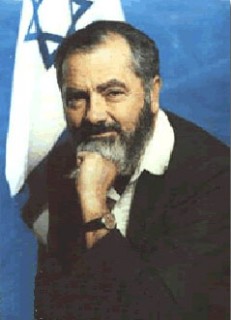
“To my surprise, my complete and utter surprise, there was something cathartic and deeply satisfying watching this revenge fantasy play out. It was as if something I did not dare admit—my secret blood lust to do unto them what they did unto us—was being acknowledged, permitted and validated. I was liberated from victimhood.”[29]
No one in his right mind should applaud Nazi Germany for its treatment of thousands of Jews. Yet the atrocities of the Holocaust do not give the Jews carte blanche to inflict similar treatment on anyone they wish, even when it is just pretend.
As we shall see in the future, history shows that the Jews were not the only people-group targeted by the Third Reich—Catholics, Protestants, Jehovah’s Witnesses, homosexuals, gypsies, and the mentally challenged received similar treatment.
Why do modern Jews carry such burning hatred for the Germans? If this hatred is rational and convincing, shouldn’t it include the Bolshevik state in the Soviet Union, which was governed largely by Jewish revolutionaries and which killed and tortured more people than Nazi Germany?[30]
Slaughtering more than 50 million people is a bloody enterprise.[31] As we shall see, this ideology is of Talmudic extraction, which promotes the belief that the Jews are more important than the goyim.
HOLLYWOOD AND SUBVERSIVE ACTIVITY

As we are seeing, the anti-Semitism trump card simply loses its ideological force when in fact it is Jewish scholars and celebrities themselves who documented that Jewish influence in Hollywood is undeniable.
Jewish actress Rachel Weisz, who has starred in movies such as Constantine and The Mummy, openly admitted the depth of Jewish influence in Hollywood in a 2001 interview:
“Hollywood’s run by Jews. I was advised by an American agent when I was about 19 to change my surname. And I said ‘Why? Jews run Hollywood.’ He said ‘Exactly.’ He had a theory that all the executives think acting’s a job for shiksas.” Weisz goes on to say,
“In some way acting is prostitution, and Hollywood Jews don’t want their own women to participate. Also, there’s an element of Portnoy’s Complaint—they all fancy Aryan blondes.”[32]
This is not new at all. Scholar Albert S. Lindemann notes that around the 1900s,
“In Great Britain there were…rumblings about ‘Yiddish gorillas’ who preyed upon Gentile women. One writer complained that ‘no Jew is more of a hero to his fellow tribesmen than one who can boast of having accomplished the ruin of some friendless, unprotected Christian girl.’ He concluded that Jews were ‘probably the most lecherous breed in existence.’”[33]
Jewish scholar Patricia Erens writes that “in the postwar period, [Jews] became the dominant force in the creation of American comedy.”[34]
She goes further to say that “from the twenties on it has been primarily the Jews who have presented themselves in American literature and it is their stories, plus original screenplays by other Jewish writers, which have formed the basis of the screen image.”[35]
Likewise, Jewish scholar Lester D. Friedman notes, “Indeed, from the very beginnings of the industry until the present, it is impossible to ignore the influence of Jews on the movie business or to overlook the importance of a Jewish consciousness in American films.”[36] Jewish writers such as Larry Anklewicz come to similar conclusions.[37]
Even the Los Angeles Jewish Times published an article entitled “Yes, Virginia, Jews Do Control the Media.”[38] Fast forward to July 2012, the Times of Israel reiterated that position in declaring, “Jews DO control the media.”[39]
The all-encompassing influence of Jews on entertainment and media has become common knowledge, and all serious scholars and Jewish publications take it for granted that the creation of Hollywood in particular and the entertainment industry in general was largely the work of the Jews.[40]
Yet if Abraham Foxman is able to casually dismiss this entire body of scholarship as anti-Semitic, even when the scholars are themselves Jewish, then how can anyone trust the premise and thinking of the Anti-Defamation League?
Jewish best-selling author and film critic Michael Medved wrote in 1996,
“It makes no sense at all to try to deny the reality of Jewish power and prominence in popular culture…Any list of the most influential production executives at each of the major movie studios will produce a heavy majority of recognizably Jewish names.”[41]
Medved also brought up the fact that the Disney studios were the product of a Gentile, but when Disney died in 1984, Michael Eisner took over and began to hire “highly paid Jewish moguls” such as Jeffrey Katzenberg, Michael Ovitz, and Joe Roth.
By the end of that decade, Disney featured “Jewish personnel in nearly all its most powerful positions.”[42]
In short, it is high time to ignore the “anti-Semitism” nonsense. Perhaps the late Jewish writer and satirist Chaim Bermant illustrates this well:
“There is the story of the Jew on a train who kept moaning: ‘Oy, have I got a pain…Oy, have I got a pain…Oy, have I got a pain…Oy…’ Finally one of the passengers, who could stand it no longer, jumped to his feet, searched the length and breadth of the train and came back with a doctor, who gave the Jew a pill, and all was quiet for a minute or two till the voice began again: ‘Oy, did I have a pain…Oy, did…’”
Bermant commented, “It is perhaps time for an end to oying. A sense of guilt does not make for a healthy relationship between ex-persecutor and ex-victim.”[43]
DECONSTRUCTING CULTURAL HARMONY
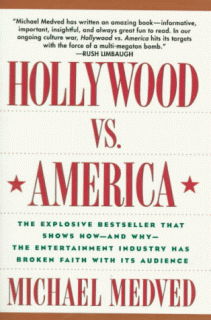 Michael Medved, himself a Jew, makes the point in Hollywood vs. America that during the 1980s Hollywood was not really interested in producing “PG” films, even though they “occupied six of the Top 10 places on the list of the decade’s leading money-makers.”[44]
Michael Medved, himself a Jew, makes the point in Hollywood vs. America that during the 1980s Hollywood was not really interested in producing “PG” films, even though they “occupied six of the Top 10 places on the list of the decade’s leading money-makers.”[44]
Based on facts like these, the million-dollar question is why doesn’t Hollywood primarily produce those kinds of film, since that is where the money is?
The answer is quite simple: Hollywood was and still is a largely subversive movement. When it comes to deconstructing the West and bringing it to its knees, there comes a point where money does not matter anymore. Making money is less important than weakening the cultural harmony that existed in America for years.
Medved goes on to say,
“In response to this consistent trend throughout the decade, one might reasonably expect that Hollywood would adjust its approach and reduce the levels of sex, violence and gutter language so that fewer films would earn the ‘R’ rating.
“Instead, official figures from the Motion Picture Association of America show that the percentage of ‘R’ rated movies dramatically increased—from 46 percent in 1980, to 67 percent in 1989.”[45]
We find the same result in 1990 and 1991, that G and PG movies “out-performed” R-rated ones.[46] In 1992, Medved brought these statistics to the attention of entertainment executives and journalists in Hollywood. One Hollywood studio executive agreed with Medved, saying that the figures he presented were “interesting,” but tried to explain why Hollywood preferred R-rated movies:
“We need pictures that have teeth to them, that have an edge, that stand out from all the stuff people see on TV…hard-edged pictures are a much safer bet—because they cut through the TV haze and get attention.”[47]
Medved’s frustration with Hollywood is understandable. But Medved, like many others, do not want to examine the root of the problem. It is the same thing with Newt Gingrich, who talked about “cultural elites” that have sought “to discredit [traditional American] civilization and replace it with a culture of irresponsibility that is incompatible with American freedoms as we have known them.”[48]
Medved writes:
“I vividly recall an emotional conversation with a best-selling author and popular television commentator who appeared with me as a part of a well-attended public discussion on media accountability. During the session, we agreed on nearly everything—particularly Hollywood’s hostility to all forms of organized religion—but afterward he asked if I could spare a few minutes to speak with him confidentially.
“‘Maybe you can help me understand something,’ he began, as we adjourned to his private office. ‘You’re right on target when you talk about what Hollywood’s been doing to this country. But you’re also part of the Jewish community. And what I don’t get, when I look at Hollywood, is why is it that so many of the people who are responsible for the worst garbage turn out to be Jews?
“‘It’s sort of become an obvious question, but nobody likes to talk about it, because nobody wants to sound like a bigot. But this is supposed to be the people of The Book, isn’t it, God’s chosen people? How come they’re so set on trashing everything that the rest of us still care about? I’m afraid we’ve got more and more people out there—decent people—who are wondering about the same thing.”
“To hear this sophisticated and dynamic public figure draw a connection between Jewish involvement in Hollywood and the current degradation of our popular culture hit me with the force of a blow to the chest. No one could ever accuse him of anti-Semitism; for many years he had compiled an admirable record of service to Jewish causes and he’d made several trips to Israel. As uncomfortable as I felt in confronting the issue, I thanked him for his candor in raising it with me, and for his consideration in doing so in private.”[49]
As much as readers should appreciate some sincerity in Medved’s Hollywood vs. America, the answers he gave are unsatisfying from a historical perspective. He declares, correctly, that Jewish power in Hollywood “reached its high-water mark in the 1930s and early 1940s—during the period often described as Hollywood’s Golden Age.”[50] He also declares,

“Many non-Jews assume that anyone with a Jewish name, or with a hint of Jewish ancestry, can automatically be counted as a self-conscious spokesman for his faith and his people. This is ridiculous, of course—especially as it applies to show business celebrities who are, as a group, disproportionately detached from their own heritage.”[51]
As we shall see, while many Jews are “detached from own heritage,” many of the same Jews still have an abiding animus against Logos, and they never seem be completely detached from revolutionary activities. A classic example would the Bolshevik regime, which operated under the guise of atheism.
Medved’s answer is that if Jewish influence corrupts Hollywood, why didn’t it happen in the 1920s, when the Jews were building their entertainment empire?
What he fails to take into account is that although powerful, the Jewish entertainment moguls didn’t have a free hand—the Catholics, with the Legion of Decency, were putting pressure on Hollywood. As Kevin MacDonald points out,
“The Motion Picture Producers and Distributors of America, headed by Will H. Hays, was created in 1922 in response to movements in over thirty state legislature to enact strict censorship laws, and the Production Code Administration, headed by Joseph I. Breen, was launched in response to a campaign by the Catholic Legion of Decency.
“The result was that producers were forced to develop projects ‘along the lines of a standard Hollywood genre while steering clear of both the Hays and Breen offices and the radical writers who may have been assigned to the project.”[52]
Besides the Legion of Decency, there were other conservative groups in the 1940s and 50s, such as the Knights of Columbus, the Daughters of the American Revolution, and the Parents and Teachers Association, that sought to counter-balance the disproportionate number of Communist Jews in Hollywood.
Because of this, Jewish revolutionary activities in movies in Hollywood were nearly non-existant, and many anti-Communist films were produced as a result. The American Legion was known as
“‘the prime mover’ in attempting to eradicate ‘Communist influence’ in the movie industry during the 1950s. The list of sixty-six movie personalities said to be associated with communism published in the American Legion Magazine caused panic in Hollywood and a prolonged series of investigations, firings, and blacklistings.”[53]
When the decency code was eventually reversed in the late 1960s, Hollywood crossed the Rubicon, never to return. Conservative beliefs regarding sex in movies were successfully challenged by Samuel Roth in the 1957 court case Roth v United States, after which Hollywood began to push past its former boundaries.
Jewish historian Andrea Friedman tells us that “after Roth an increasing number of opponents of obscenity justified their activism as necessary to the proper (democratic) operation of the legal process laid out by the Supreme Court.”[54] Jewish writer Luke Ford lists a number of secular Jews during that era who rose up to challenge “the reigning order.”[55]
Ten years after the Roth v United States case, Congress created the Presidential Commission on Obscenity and Pornography under President Lyndon Johnson, whose eighteen members were hired specifically to provide research information on the smut industry.
After much debate, the group “funded a series of social scientific studies intended to gauge ‘erotica’s’ social effects, from which they concluded there was ‘no evidence to date that exposure to explicit sexual materials plays a significant role in the causation of delinquent or criminal behavior among youth or adult.’”[56]
Yet the assertion dismissed the research that was done in the 1930s by Fredric Wertham, a Jewish psychiatrist who spent seven years researching the effect of comic books and visual images on the development of children and adults, and the author of Seduction of the Innocent.
The conclusion reached by Johnson’s Presidential Commission—that pornography is essentially harmless—was later challenged under President Ronald Reagan with the 1986 Final Report.[57]
AMERICA UNDER SIEGE
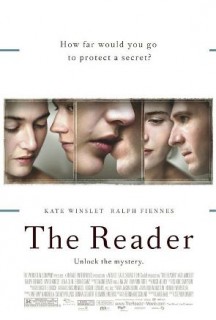 This was an intense time period in America. Neal Gabler points out that even in the 1930s, Jews in Hollywood were still radical; it was merely that there was not enough social latitude for them to be open about their radical beliefs.
This was an intense time period in America. Neal Gabler points out that even in the 1930s, Jews in Hollywood were still radical; it was merely that there was not enough social latitude for them to be open about their radical beliefs.
Gabler notes that the American Communist Party (CPUSA), which was under the control of Communist Russia at the time,[58]
“dispatched V. J. Jerome and Stanley Lawrence to Hollywood to channel the inchoate political sentiment there…Educated in England and at New York University, Jerome was one of those leftist intellectuals who was attracted to the CPUSA, and by the time he arrived in California he had become chairman of the Party’s Cultural Commission, its cultural commissar.”[59]
It was only a matter of time before Jerome was lecturing Hollywood writers on Marxist and Communist ideas. He declared that
“agitprop [agitation propaganda] drama was actually better drama because Marxists better understood the forces that shaped human beings, and could therefore write better characters.”[60]
Jerome went on to emphasize that Hollywood is already fighting for the good causes, and “however worthless” the movies can be, “they contributed mightily to the Cause in the long run.”[61]
Gabler comments that “to a writer who already felt unappreciated, this was like evangelism to a redeemable sinner…It was the political equivalent of salvation.”[62]
After spending “nine months of agitating in Hollywood, the Party had a firm hold in the film community; estimates range as high as three hundred members during the decade from 1936-1946—nearly half of them writers.”[63]
Gabler writes:
“But as much as the Hollywood Communist party was a writers’ party, it was also, to the everlasting regret of American Jews generally, a Jewish party. (Indeed, to be the former really meant being the latter as well.)”[64]
The intellectuals who joined the Party in America, Gabler writes, “were disproportionately Jewish.”[65] While the Jewish population in America was less than 3 percent at the time, “50 percent of the Party’s members were Jews during its heyday in the thirties and forties, and a large minority—sometimes a majority—of the Party leadership was Jewish.”[66]
One member of the Party declared that “nearly 90 percent of the Party in Los Angeles was Jewish.”[67]
Protestants—and here we mean the WASP ruling class–were somewhat ignorant of the battle for American values that was heating up in Hollywood during the 1930s, and the only conservative group that clearly understood what was at stake, that understood that producers in Hollywood would trample the Christian ethics in America if they had the opportunity to do so, were the conservative Catholics.
Accordingly, Hollywood made sure that the Catholic Church was depicted as dictatorial in movies such as Sin City (2005), written, directed, and produced by Jewish comic book writer Frank Miller, Monsignor (1982), Agnes of God (1985), and Nine (2009, produced by the Weinstein Company).
Yet Catholics aren’t the only ones with blackened reputations. In 2009, a movie called Agora was released that depicts the early Christians in a negative light. The Last Exorcism (2010), produced by Eli Roth, paints Christians as foolish, ignorant, and naïve. More recently, We Are What We Are (2013) and Carrie (2013) have just been released, which portray Christians as cults.
It also parallels some of the scenes in the 1968 movie Rosemary’s Baby, directed by Jewish director Roman Polanski and featuring the infamous Jewish cultist Anton LaVey.
WHO IS RESPONSIBLE FOR ANTI-JEWISH REACTIONS?

The 2008 movie The Reader, starring Kate Winslet, produced by the Weinstein Company, was labeled child pornography by Thelma Adams of the Huffington Post because Winslet’s character repeatedly has graphic sex with a teenager.[68]
The Weinstein Company also produced Piranha 3D in 2010, directed by Jewish producer Alexandre Aja (who also directed The Hills Have Eyes and The Hills Have Eyes 2, both of which were called “detestable gore-porn.”[69]
One of the most controversial movies of 2008 was Milk, a movie featuring Jewish actors Sean Penn and James Franco that explicitly promoted homosexuality (released by Focus Features, which was originally created by Jewish mogul Barry Diller in 1999).
The company is also known for producing other openly homosexual movies such as Brokeback Mountain (2005), starring the late Heath Ledger and Jewish actor Jake Gyllenhaal, and The Kids are All Right (2010), featuring Julianne Moore and Annette Bening as lesbians and the mothers of two teenage children by the same sperm donor.
These facts bring us to two crucial points. First, anti-Jewish reaction does not arise from what defines Jews ethnically.
As a corollary, Jewish subversive activity is not the result of bad DNA (and it pains me to read that some writers embrace or even give credence to this ridiculous idea, which has its feet firmly planted in internal contradiction and intellectual mumbo jumbo—too much to deal with here).
Jewish subversive activity is the result of embracing the teachings of the Talmud, and those teachings both implicitly and explicitly have ideological implications. As Jones rightly puts it,
“The purpose of the Talmud is to prevent defections from the ‘Synagogue of Satan.’ Behavior based on the Talmud leads to resentment on the part of non-Jews. Jewish leaders promote that behavior knowing it will cause reactions because ‘Pogroms in which the rank and file of the Jewish nation suffer serve the useful purpose of keeping them in absolute dependence on their leaders.’ Trotskys promote the revolution and the Braunsteins suffer.
“Jewish leaders promote pogroms, such as the Gomeler Pogrom of 1905 or when Mossad agents deliberately killed Iraqi Jews to spread panic, because pogroms promote fear, which is how the Kahal keeps ordinary Jews in line.”[70]
It is the same thing with Eli Roth, who declared that his Hemlock Grove series will “f—up an entire generation…. You wanna see the sex and you wanna see the killing and the violence. You want the murder to be scary and horrible!”[71]
One commentator in the Telegraph quickly reacted to how Roth planned to screw up an entire generation. She wrote,
“Sigh. I wish that we, as a an entire planet, could round up all the torture enjoyers, torture participators, and all those who think torture is ‘okay in certain circumstances,’ and those who just think it is fun to watch on TV and movies. Round them up, and pack them up with as many of their possessions, and supporters, and send them to another planet. No returns.
“Can you imagine how much more wonderful planet Earth would be. All those sick mean people gone. They could have their own planet far away to endure the kind of life they would foist on the rest of us.”[72]
Another commentator puts this in some historical context:
“Just another subversive given undue prominence and power by his co-religionists in hollywood. The Frankfurt School began in 1923 in Frankfurt Germany. Its mission was to pave the way for global Marxism.
“The School of Frankfurt was a Jewish supremacist think tank, they fled Germany when Hitler got into power because of the horrors of Marxist Bolshevism. They set up in 1930’s in America, the ideology was amended to corrupt and control USA. They took refuge in America where many became influential in American universities. The Frankfurt School’s studies combined Marxist analysis with Freudian psychoanalysis to form the basis of what became known as “Critical Theory.”[73]
Roth should be held accountable for such responses. If Roth and his Jewish comrades such as Scarlett Johansson and Joseph Gordon-Levitt continue to pollute the culture with pornographic movies such as Hostel and more recently Don Jon, then they will find themselves in conflict with much of the Western world.[74] In other words, anti-Jewish reaction is largely a Jewish creation.
org/special_reports/movie_industry/movie_intro.asp.
Abrams, ed., Jews and Sex (Nottingham: Five Leaves Publications, 2008), 177-188.
Award,” Huffington Post, February 18, 2010.
“Rachel Weisz Climbs the Charts,” JewishJournal.com, October 22, 2009
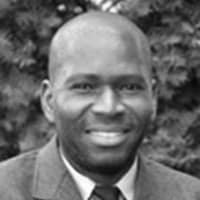
Jonas E. Alexis has degrees in mathematics and philosophy. He studied education at the graduate level. His main interests include U.S. foreign policy, the history of the Israel/Palestine conflict, and the history of ideas. He is the author of the new book Zionism vs. the West: How Talmudic Ideology is Undermining Western Culture. He teaches mathematics in South Korea.
ATTENTION READERS
We See The World From All Sides and Want YOU To Be Fully InformedIn fact, intentional disinformation is a disgraceful scourge in media today. So to assuage any possible errant incorrect information posted herein, we strongly encourage you to seek corroboration from other non-VT sources before forming an educated opinion.
About VT - Policies & Disclosures - Comment Policy



